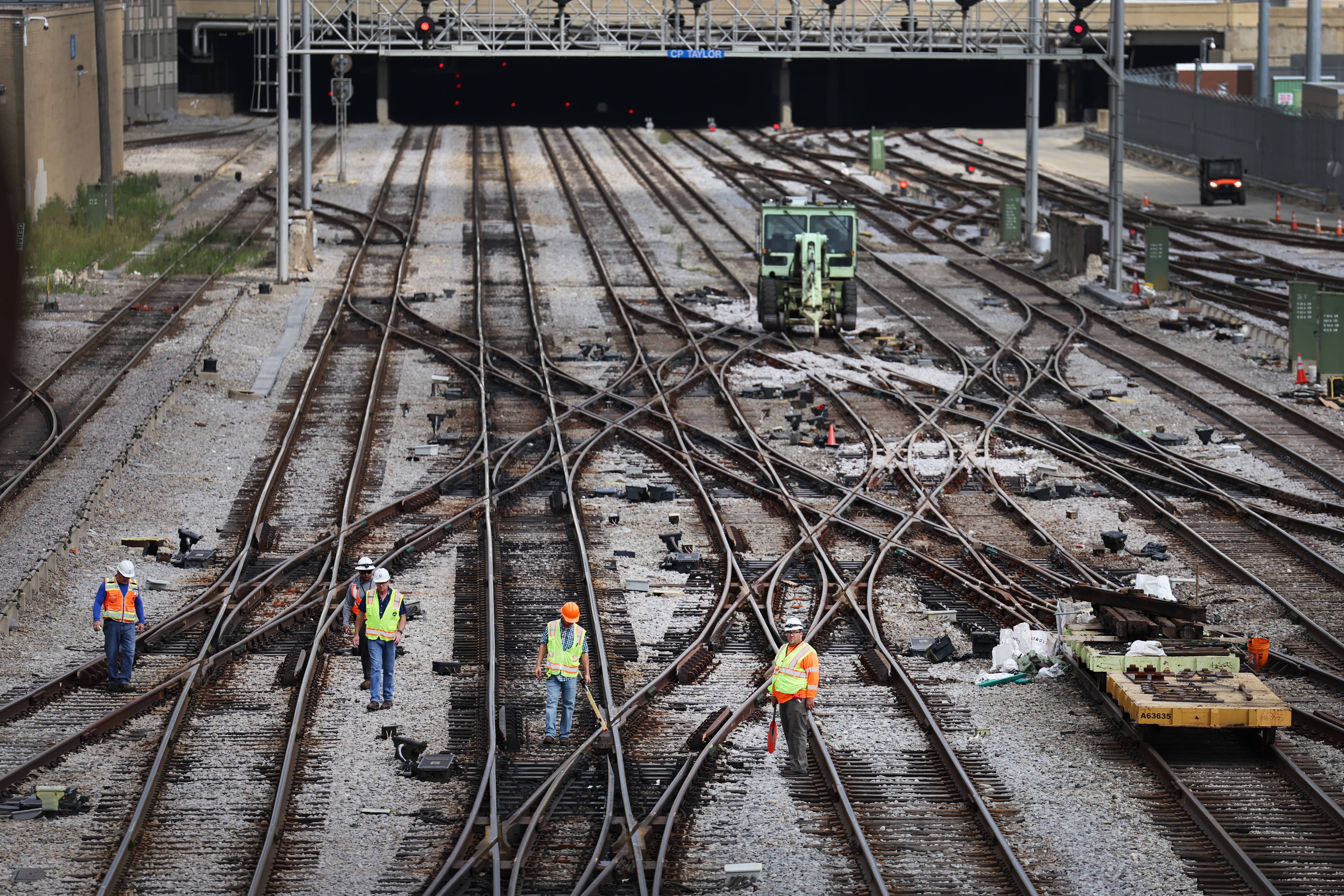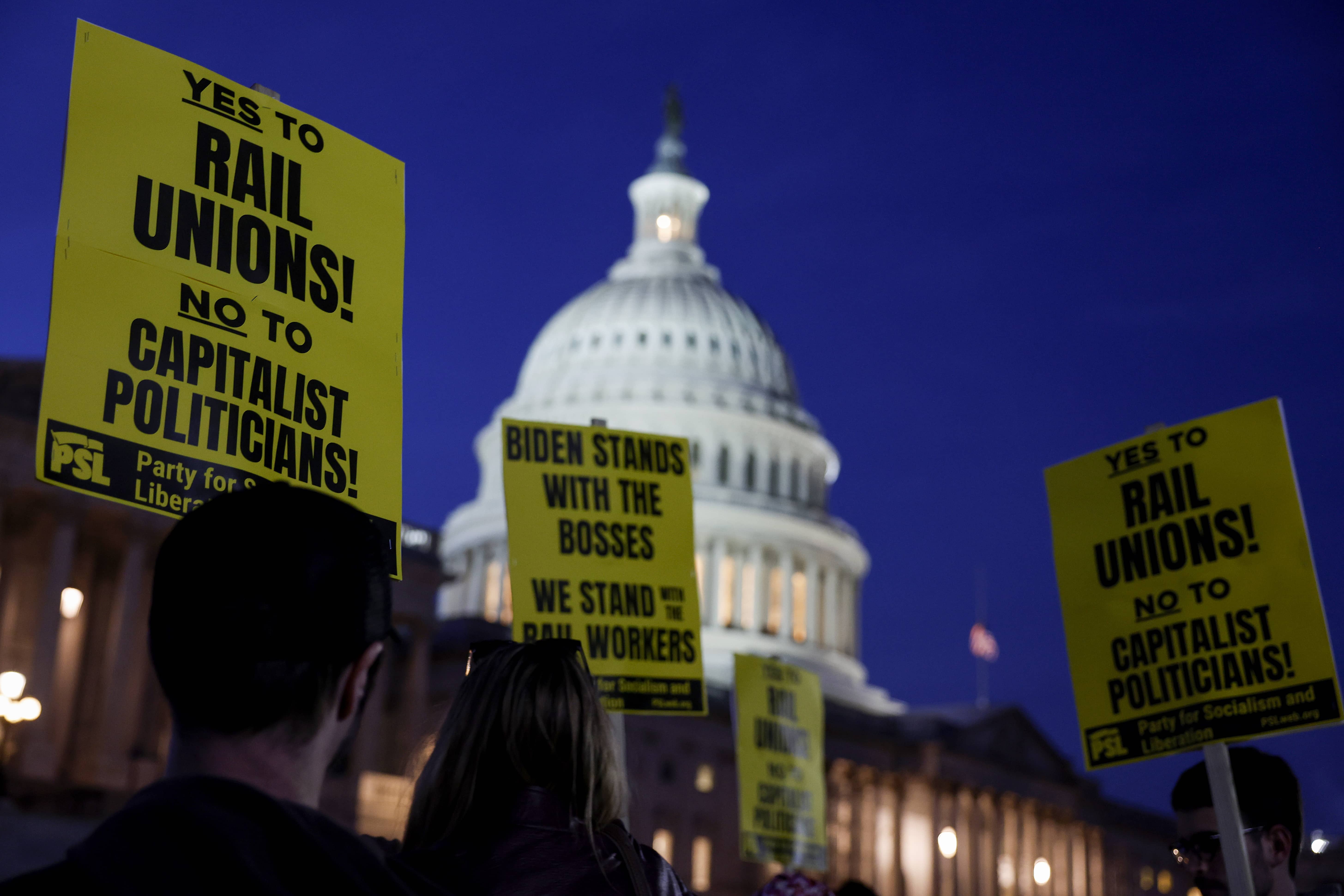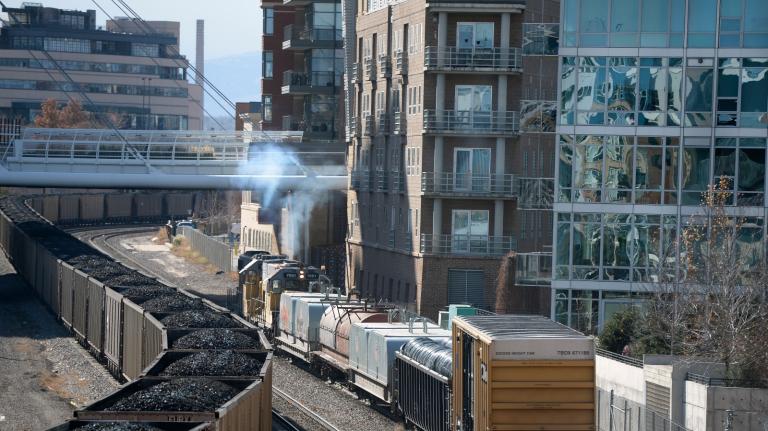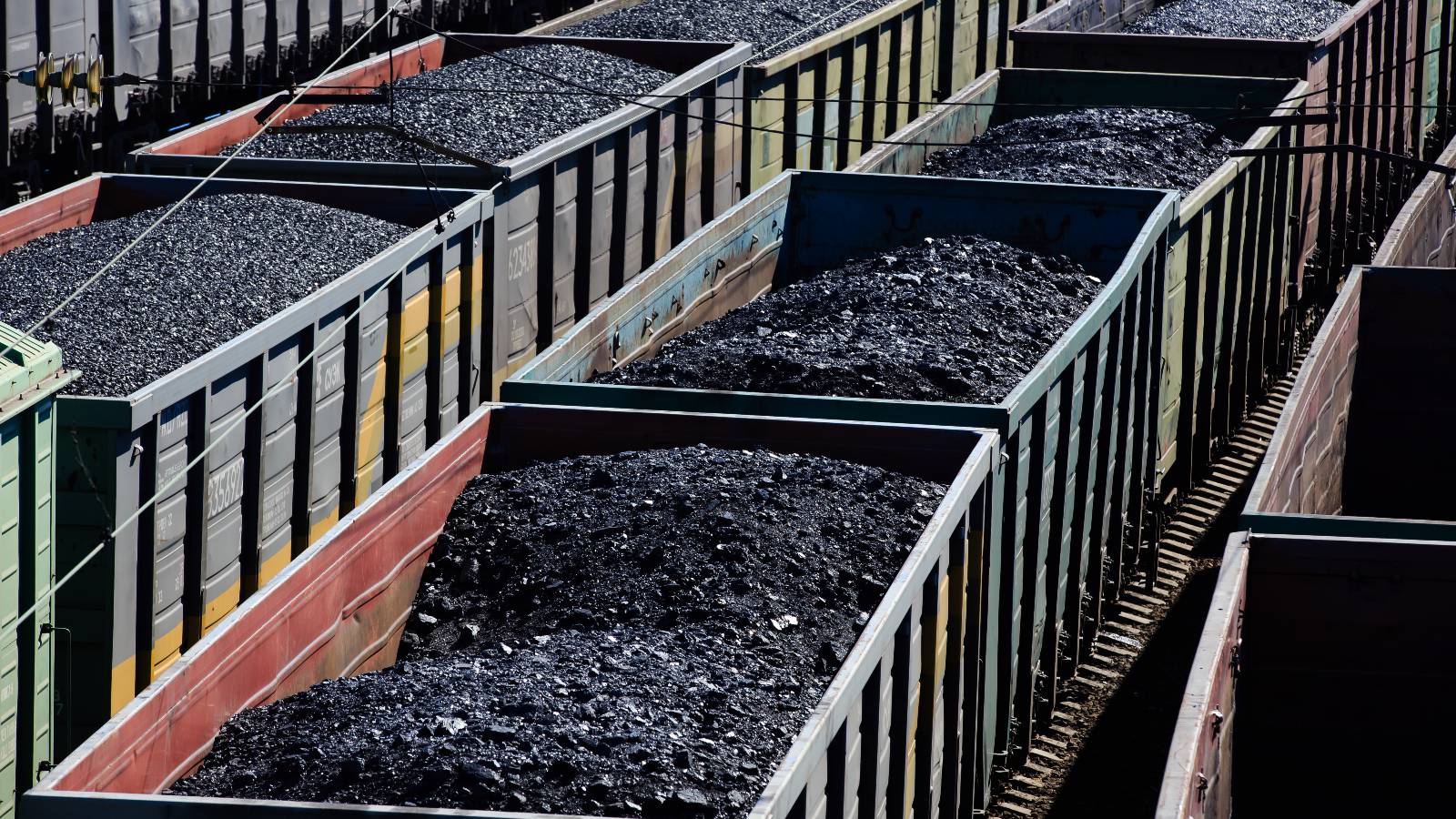As the country barrelled towards a potential rail workers strike last week, battle lines were drawn over the issue of paid sick leave. On the one side were unions — the signalmen, track workers, boilermakers, and conductors — who had rejected a contract brokered in September that didn’t include paid time off for illnesses or medical visits. On the other were big rail companies, which have spent years cutting staff, extending worker hours, and enacting stricter attendance policies, all while making record-breaking profits.
Behind the scenes, however, another big industry also had stakes in the standoff: Big Oil. Coal companies, chemical companies, and oil and gas backed rail majors in lobbying Congress to block the workers’ strike.
In early November, the American Chemistry Council, which counts BP, ExxonMobil, and Chevron among its members, put out a report warning that a rail strike could “pull $160 billion out of the economy” and lead to 700,000 job losses. Then last week, 400 business groups sent a letter to Congress urging lawmakers to use their authority from a 1926 law to impose the controversial, rejected contract in the absence of a voluntary agreement. In addition to retailers, agriculturists, and car manufacturers, signatories included the American Petroleum Institute, a trade group for drillers, the National Mining Association, and the Renewable Fuels Association, representing ethanol. All of these industries rely on freight rail to make and ship their products.
“A rail strike would threaten to push an alarming situation over the edge,” Rich Nolan, president and CEO of the National Mining Association, said in a press statement, invoking the already-low coal stockpiles moving into the winter. “The nation needs reliable and efficient rail service and it’s imperative that Congress and the Biden administration act to ensure a strike doesn’t jeopardize it.”
In the end, rail companies and fossil fuel interests were joined by President Joe Biden, who urged Congress to avert the strike over fears of economic breakdown. On Thursday, the Senate did just that, forcing workers to accept the contract with paid sick leave still missing.
“The fact that there are not 60 senators willing to stand up to big business and fight for basic rights for U.S. rail workers is horrific,” tweeted Teamster General President Sean O’Brien.
At first glance, rail would seem like a relatively climate-friendly industry. Transportation is the highest emitter of greenhouse gases in the United States, where passenger cars, trucks, and buses make up over 70 percent of the sector’s emissions. Rail contributes just 2 percent, even while it moves a third of all U.S. exports and about 40 percent of long-distance freight.
But what is often missing in these calculations is what these trains are carrying. Freight trains transport nearly 70 percent of the nation’s coal. When you account for that, they were actually responsible for 16.5 percent of all U.S. carbon pollution in 2019, according to Stanford geoscience professor Rob Jackson, as reported by the Atlantic.

“Coal was our number one revenue source until about the 1990s,” Jim Blaze, a railroad economist who worked for 21 years at Conrail, told Grist. (Conrail, once the primary railroad system in the Northeast, was acquired by CSX and Norfolk Southern in 1997.) Coal shipments have been declining in recent years, as natural gas takes its place in the energy mix and cargo containers and chemical shipments become more important revenue drivers for the rail industry. Still, coal makes up close to 27 percent of freight rail volume in the U.S., and 11 percent of freight’s revenue. As a result, the rail industry continues to be closely allied with coal.
Research from 2019 showed how, over the past 30 years, BNSF Railway, Norfork Southern, Union Pacific, and CSX, the four largest rail companies in the U.S., joined other coal-dependent companies such as electric utilities in pouring tens of millions of dollars into denying climate science and opposing climate policy.
“It shows that the rail companies were actually funding more climate denialism organizations than even the oil industry,” said Justin Mikulka, a research fellow at the energy transition think tank New Consensus who formerly covered the rail industry as a journalist. “Coal has been such a huge part of rail – it was in their interest to deny that coal was part of the problem.”
According to The New Republic, it was only in late 2020 that the four big rail companies began to abandon their membership in the American Coalition for Clean Coal Electricity, also called America’s Power, which lobbies against climate action and has promoted the “social benefits” of carbon.
And coal isn’t alone. While most oil and gas is sent by pipeline, the oil and gas industry does still rely on rail. Marianne Kah, an oil and gas economist, told The Hill that freight rail moves between 300,000 and 700,000 barrels of crude oil, and 200,000 to 300,000 barrels of propane per day, which, though small quantities compared to coal, do impact availability and price. Oil and gas companies also rely heavily on chemicals transported by trains to create their products. Refiners receive isobutane and ethanol by rail to use in gasoline; in fact, over 70 percent of all ethanol produced in the U.S. travels by rail, and ethanol plants for their part rely on rail to bring in a quarter of their grain. Rail also carries away the sulfur byproducts from the refining process.
Beyond writing letters to block the most recent strike, oil and gas companies have a history of collaborating with the rail industry to avoid freight regulation. In 2013, after a series of high-profile oil train explosions, regulatory agencies spent years trying to implement oil-by-train safety policies, including speed limits for trains, improved braking systems, and requirements to condition oil to make it safer to put in tank cars. “At every meeting by one of the regulatory agencies, the person at the head of the table was someone from the American Petroleum Institute [or API],” said Mikulka, who wrote a book about how freight and oil companies blocked regulations in the years after a runaway train filled with crude oil derailed in Quebec, exploding and killing 47 people. “Even though we’re talking about rail regulations, oftentimes it appeared that the API was driving what was happening.”

It’s hard to predict what type of long-term impact shutting down coal and ethanol shipments via a strike would have had on the markets and the move to clean energy, said Blaze. But as Kate Aronoff writes in The New Republic, the strike showed how central fossil fuels still are to the U.S. economy, and how corporate polluters continue their fight to keep it that way.
Ironically, many of the same industries that lobbied against the strike on Capitol Hill have railed against the freight companies at agency hearings for delays and service disruptions. “Shippers and railroad customers were upset this summer about the services they were getting,” said Clark Ballew, a former rail worker and current communications director for the Brotherhood of Maintenance of Way Employees, which represents track workers. “Their concerns stem from the fact that railroads don’t have enough people to keep trains moving. The way that we can improve this is… better treatment of employees, that’s the root cause of their problems.”
Strikes are uncommon in rail history, in part because of Congress’ power to intervene, which it historically does on behalf of industry. Rail workers hoped that a more favorable agreement could have been worked out at the bargaining table, or enforced through Congress, by passing a health care addendum to the contract.
“At this juncture it’s clear they’re not going to allow the strike to occur,” said Ballew, just two hours before the Senate voted to impose the contract. “We just want the sick leave added. Can Scrooge be nice to us? It’s Christmastime.”
He says the issue of paid leave will come up again in two years when the contracts are up for renewal.



